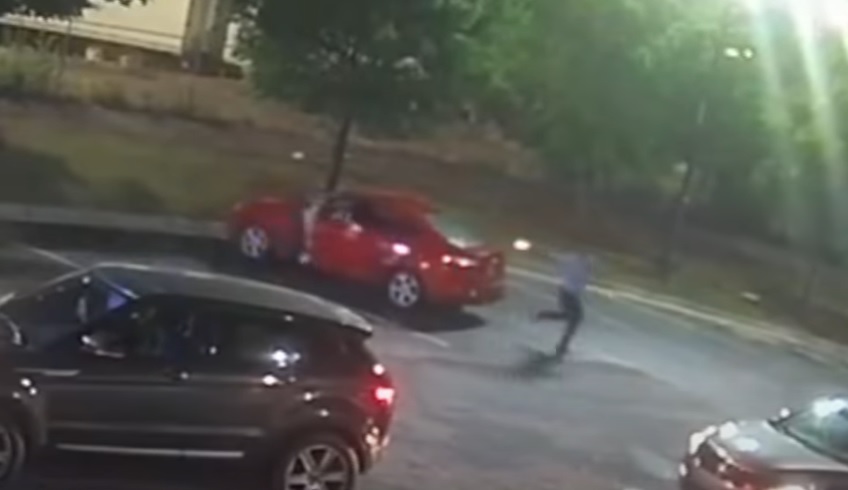
By Steve Pomper
We know the formula by now, don’t we? The initial media reports come out saying something like, “White Cop Shoots Unarmed Black Man.” This headline is off winging its way around the world while the truth is struggling into its pants. Later, fully dressed, the truth finally arrives to tell us the suspect was armed. But the damage is done.
They do this even when officers shoot truly unarmed suspects who we later find out were trying in other ways to injure or kill the officers who shot them. Take, for instance, the Rayshard Brooks shooting in Atlanta. He started the incident unarmed, then he armed himself by stealing an officer’s Taser and attempted to escape. Atlanta P.D. Officer Garrett Rolfe pursued Brooks. But rather than surrender or drop the Taser, Brooks, while running, turns and fires the Taser at the officer. The officer fires, Brooks drops to the pavement, and dies.
To the vast majority of cops considering the facts of the case, this is a done deal. Of course, the incident needs to be officially investigated. But had those Taser darts struck the officer, he may have lost control of his firearm, and the suspect could have taken his gun and shot Rolfe or his partner. I’m not sure in what world people live where they believe a suspect can shoot a Taser at an officer, and the officer may not use deadly force in response.
And this next part is where cops who’ve resigned, went to another agency, or retired earlier than planned from their departments, as I did, shake our heads. According to USA Today, “Rolfe, who is white, was fired from the Atlanta Police Department one day after he fatally shot Brooks, a Black (sic) man….” One day, without being provided an opportunity to respond to charges or policy violations? The lack of due process afforded police officers whose only crime is doing their jobs.
The folks who fired Officer Rolfe are aware of constitutional due process and the presumption of innocence. However, they willfully ignore these basic tenets of the rule of law and refuse to support an officer who risked his life and wellbeing for his community. What causes disheartened officers reason for hope? When the accused officers are inevitably cleared of wrongdoing and rehired.
USA Today also reported, “A city review board reversed the firing of an Atlanta police officer charged with murder in the shooting death of Rayshard Brooks. In its ruling Wednesday, Atlanta’s Civil Service Board said Garrett Rolfe ‘was not afforded his right to due process’ in his firing ‘due to the City’s failure to comply with several provisions of the (Atlanta City Code) and the information received during witnesses’ testimony.
“Therefore, the board grants the appeal of Garrett Rolfe and revokes his dismissal as an employee of the APD.”
To add to the injustice of not affording police officers due process, the state media resorts to inaccurate, even false, reporting. For example, and this is one reason I chose this article, USA Today describes the incident this way. “Brooks was shot in the back as he ran away from Rolfe and another police officer after resisting arrest over a suspected DUI. During a scuffle before the shooting, Brooks took a Taser from one of the officers and fired it.” At…?
Cops will immediately see the dishonest reporting. The omissions and lack context are striking. “Scuffle” = resisting arrest, “took” = robbery (Taser taken by force), and finally, “Brooks took a Taser from one of the officers and fired it.” Fired it at what or whom? Oh, right, at the police officer from whom he’d escaped. As video clearly shows, Brooks turned while running “and fired it” at Officer Rolfe.
At the beginning of Officer Rolfe’s split-second, while also running and, it appears, slamming into a parked car while attempting to avoid being struck by the Taser darts, he fired at Brooks. At the other end of that split-second, Brooks reached backwards while still running forward and fired the Taser at Officer Rolfe. Then Brooks, still armed with the Taser, continued to run from a crime scene—one he’d created.
Officer Rolfe’s attorney, Lance LoRusso, was happy with the ruling. He said Officer Rolfe remains on administrative leave and cannot go back to work as long as charges are pending and a “bond prevents him from possessing a firearm or being around other officers.”
The Atlanta Civil Service Board said, “the city did not follow proper procedure, and Rolfe’s right to respond was ‘negated.’” I wish this were an anomaly, but it’s become standard practice when the accused person is a police officer.